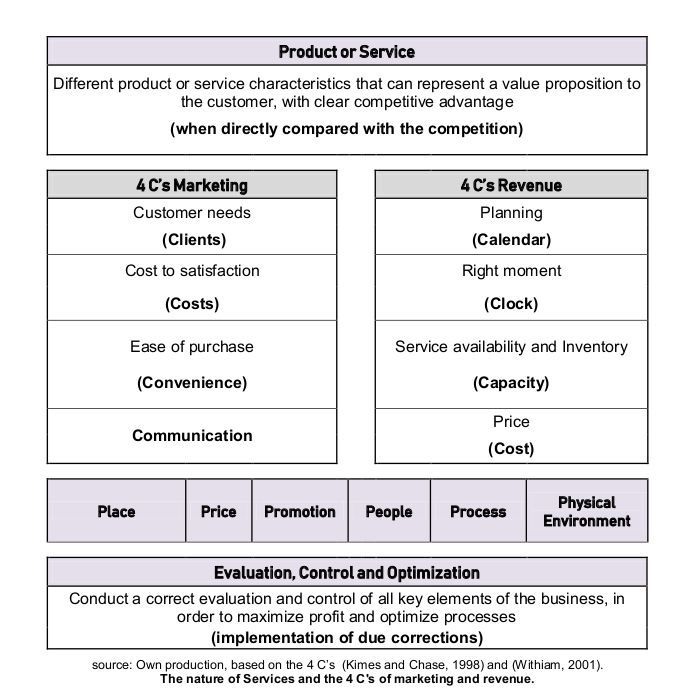This article was developed due to the fact that we have detected that there is some confusion in the market, among active professionals regarding the understanding of Revenue Management concepts that prove essential to their activity. In this classification, the author will make a retrospective of the different concepts related to Revenue Management evolution. In this way, we can find a uniform basis of work regarding the use of terms and expressions throughout the scientific dissemination on the subject.
The concept of Revenue Management and Yield in hospitality is not always very clear
In the hotel industry, this scientific concept of revenue management is linked to supply and demand and is used to calculate the best price policy in order to maximize the results and profits generated by the sale of a product or service, based on the availability management, the discounts in the accommodation and the length of stay control. This concept is based on mathematical models of simulation and forecasts of demand trends by market segment (Henriques, 2013), whose main objective is profit maximization (McGill and Van Ryzin, 1999). It is also the art and science of predicting in real time, consumer demand for our product or service (Robert Cross, 1997), optimizing its price and availability.
Over the time , the concept has undergoing several mutations in what concerns its denomination, its objectives, its functions, used methodologies, strategy, tactics or its fundamental goal.
There is a widely agreed and widely used consensus definition within the industry.
It is said that Revenue Management is a practice, technique or a management method that wants to sell the right product to the right customer at the right time and at the right price, while also managing the 4 C's across the organization, integrated with the optimal marketing mix.
This definition seems a bit simplistic, but in reality it is difficult to fully apply in its various key elements, which we can observe in the following summary table.
The basic concepts and their differences
In the current literature there are a number of designations that over time have been mixed with each other, giving rise to misinterpretations of their practices. In this article we clarify the ambiguity of each of the designations, opting for the use of what seems to be the most consensual within the scientific literature.
The most frequent designations are Yield Management and Revenue Management, however currently these two designations represent distinct practices undergoing evolutionary derivations.
Yield: translates as the process of adjusting the price of a product or service in response to changing certain market factors such as demand or competition for a product or service (rate fluctuation).
Yield Management: is the management of the process described above and in which it is essential to control a set of 3 factors, namely: 1) quantity of sale, 2) price and 3) which market segment to sell. It is a decision support process ( Yeoman and Ingold , 1997) and consequently the optimization of inherent benefits (Jones and Lockwood , 1998; Griffin, 1996; Jarvis et al., 1997; Chiang et al., 2007 and Chavez and Ruiz, 2005).
Revenue : revenue that ends up encompassing more factors than its initial application (sale of housing units) and expands the concept to another type of revenue that can be obtained in the hotel and that until then did not have great expression (rooms division and other outlets/areas).
Revenue Management: term used by one of the largest references in tourism education - Cornell University , Scholl of Hotel Administration , to designate research in the area. Kimes (1998) is the researcher who has most contributed to the development of this concept, introducing the element of "right place" throughout the process. Continuing with its objectives, Kimes and Chase (1998) define Revenue Management as the management of the 4 C's of a perishable service (Calendar, Clock , Capacity and Cost ).

Total Revenue Management: term that arose as a result of the emergence of new trends and services in hotels, and that created the need to extend the practices of the concepts above mentioned to these new activities that could have a great weight in total revenue. The appearance of Spas, golf courses and multiple F&B oulets, as well as the internet development, led Kimes to extend the concept and call them non-traditional applications of Revenue Management or Total Revenue Management. This new designation brings a new approach: a dynamic approach, more related to marketing and customer relationship management in its various points of contact with the hotel (Kimes , 2009), in a way that is transversal to all operational hotel areas. When we refer exclusively to hotels we designate **Total Hotel Revenue Management (THRM) **. With the contribution of Noone , Enz and Glassmire (2017), the advantage of its strategic application across the whole property in all hotel services is demonstrated (this system will be covered in more detail in a future article). In addition to hotels, this concept is applied to other economic activities such as car rental, venue spaces, travel agencies, catering industry, spas, etc.
Total Revenue Optimization(Total Net Revenue Optimization Management Process): is the evaluation system of each euro (€) investment, as well as all its processes, in the various elements of revenue creation, bearing in mind its evaluation, correction and improvement. It involves several complex business phases that go far beyond the simple operation and rate planning, such as strategic property planning, financial planning, marketing and sales planning, integrated promotion actions, resources allocation, performance analysis of each action during and after its completion in good time, with the objective of making future corrections and adopting a more strategic positioning. There is an expressive quantification of revenue indicators in their net form and in an optimization of profit and loss perspective (which may raise new questions, such as tax effect and its impact on revenue management).
Final considerations
These are concepts that are constantly changing over time, being translated into new realities as there is a greater technological evolution and new solutions are presented to the market. It is up to all professionals to update and identify new trends with constant training over the years, so that they can perform their duties as efficiently as possible.



